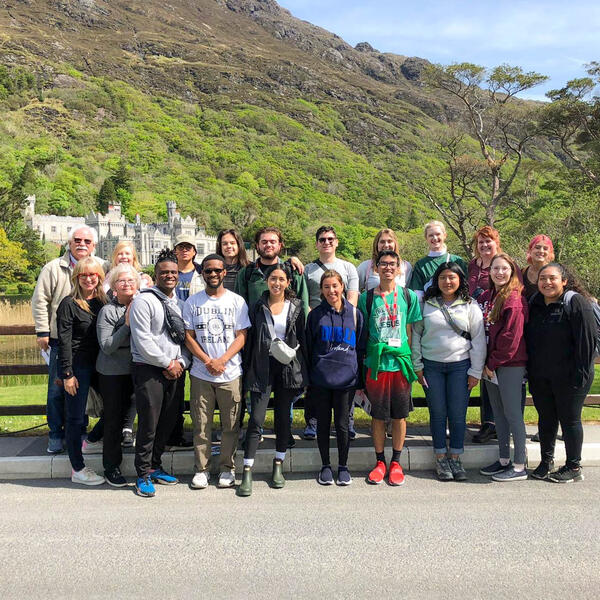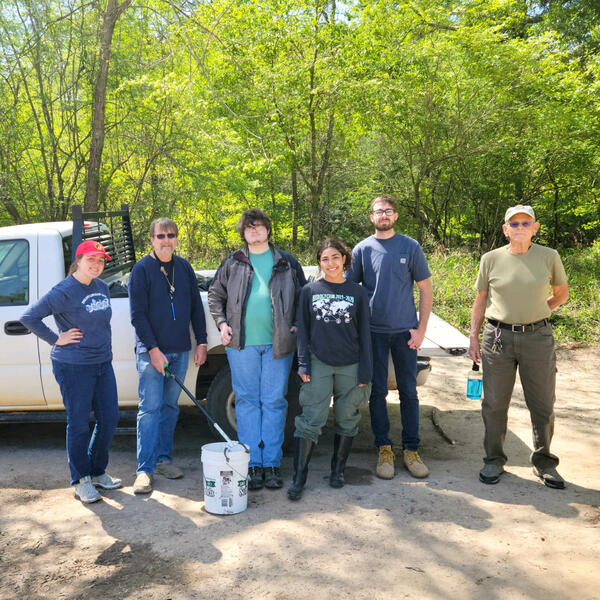Nursing Faculty Going the Extra Mile
Nursing Faculty Going the Extra Mile
The Southwestern Adventist University Department of Nursing has been strong for many years. This past year, the program became even stronger because of the thousands of donors who helped us make our new nursing classrooms, skills lab, simulation labs, and offices a reality. Opened for instruction spring semester 2019, this state-of-the-art nursing facility provides students with an exceptional learning environment and offers opportunities for program growth.
Though facilities are important in providing quality education, it is critical to have superior programming and dedicated faculty who enable students to acquire essential skills and gain the necessary knowledge to pass their boards to become registered nurses who provide safe, effective, and compassionate care. It is a bonus when faculty go beyond the normal routines of preparing and teaching classes to give back to their profession by sharing their knowledge with the community. I am proud to report that our nursing professors are going the extra mile.
Recently the University created the Center for Wellness Integration. Its objectives include advocating for the health and wellness of community residents through the experience and expertise of campus leaders and professors. This also provides an opportunity for students to serve in meaningful ways and gain invaluable experiences.
Examples of the Center’s current activities include Wellness Counts community engagement projects managed through the Nursing Department: Partnering with the Keene Chamber of Commerce to implement the annual Business Expo/Health Fair; facilitating the Wellness Counts Diabetes Reversal program and support group; and involvement with area organizations on projects that serve community needs.
Nursing Department faculty member Dr. Terri Gibson recently received a grant from the Ardmore Institute of Health to explore whole-person wellness certification for undergraduate nursing education and continuing education for nurses. This would include a focus on lifestyle management and spiritual care. The intent is to bridge the knowledge and practice gaps relevant to providing care that addresses the whole person. In other words, the certification will help nurses to better address patients’ physical, spiritual, social, and mental health needs.
Just this week, thought leaders from around the country have come together to deliberate how to bridge these gaps. The impressive team of national leaders included a senior chaplain; lifestyle medicine family physician; prominent professors from nursing schools, and leaders from the following healthcare organizations: Florida Center for Nursing, American Nurses Credentialing Center, Thought Foundation, and AdventHealth.
A primary goal for this group is to provide educational content that would assist nurses to approach care from a whole person perspective with attention to what matters to the individual. This includes helping nurses to learn to care for themselves as well. The group discussed ways they could seek accreditation from a national nursing credentialing organization and synergistically work with other entities with similar health care values. Of particular interest is collaboration with the American College of Lifestyle Medicine to benefit from the excellent work they have already accomplished in addressing lifestyle care concerns.
The group spent time considering the need and timeliness of a Whole-Person Wellness Certification product, how the concepts could be utilized by academia and healthcare institutions, and framing a business case for the project.
The work this week completes the phase 1 consensus-building portion of the project. Future phases include curriculum development, piloting the curriculum, and preparing a finalized product.
As an administrator, I am honored to work with well-educated nursing faculty who think broadly about topics and use their expertise to explore ways to provide better healthcare with improved outcomes for consumers. I look forward to seeing how this project moves forward and the positive impact it might have on healthcare.
This article is an opinion piece written by President Shaw for the Cleburne Times Review






